[youtube id=”41f-6lqo0LM” width=”600″ height=”350″]
Wojciech Marczewski, Polish Film Director, born in Lodz in 1944. Winner of the Silver Bear and FIPRESCI Prize in Berlin, Special Jury Prize, Critics Award, a Golden Lion and two Silver Lions at the Polish FF and the OCIC award at San Sebastian. Here for the Kinoteka Polish Film Festival in London.
AT I have only had the opportunity to see two of your films prior to this, due to difficulty seeing your films in this country! Shivers (Dreszcze) and Escape From The ‘Liberty’ Cinema (Ucieczka z kina ‘Wolnosc’).. Great then that you have this festival in London…
WM Ah yes. Both of these films Shivers (1981) and Liberty (1990) were made right on the cusp of the Solidarity Movement so when Solidarity first appears, only thanks to this do these films appear! Shivers, I wrote this script before Solidarity appeared..
AT But you knew that Solidarity was coming…?
WM Nobody Knew! [laughs] We sensed something Maybe would happen, but… also I would say that especially Shivers is a part of my biography, so it was important for me and also an important part of Polish history, because it was (set in) the mid-Fifties in Poland, which was the darkest of times there. So I wrote the script anyway. I didn’t believe that the film would be made right now.
AT But it was something you felt you had to write?
WM Yes, yes. So when my producer saw the script, he said ‘Are you kamikaze?! You have no chance.’ But I insisted. The procedure was that we had to send the script to be accepted… or not- to the Ministry of Culture. The first answer was ‘Are you crazy?…’ but then, in (just) two weeks, the Solidarity Movement hit and it was like a big blast, so in the meantime, I was asking the Minister for a meeting and he turned around and said ‘I am forced to meet you and say yes. I am forced’ and I said ‘what do you mean ‘forced’? Look at what is happening on the streets’. I had one year to make it and in three months, Martial Law was declared and the film was banned for more than four years. That’s the story of Shivers..
AT But the film wasn’t destroyed…
WM No. No. (You see), the film won a prize at the Polish FF and there were some German distributors and some people from the Berlinale and they said ok, we want this film and (the Ministry) said ‘ok, in a couple of months we will send you the perfect print’ and I said ‘No. You take this one right now, otherwise, no deal’. (One) sensed that, at any time, anything could happen, you know, so I wanted them to take it right then. They took the print with them (and) that was crucial. And then it was accepted into Competition at the Berlinale. So (then) the (Ministry) said they would ‘like to change the film’ to (better) represent Polish cinema at the Berlinale (ie use an alternative film, not Shivers). But the Berlinale supported me and stated ‘We have already published the catalogue with stills from this film, we cannot change them now, or tear out a page..’ but this was not true [laughs] and a German distributor also said if the film didn’t appear in the Berlinale, that they wanted to put on a limited release of the film in cinemas around the Berlinale anyway. So the Polish authorities, they had no choice and then the film won the Silver Bear.
AT And Escape from the Liberty Cinema.. What inspired this story?
WM After Martial Law came in… I felt badly, you know, I felt like a Rottweiler… that I couldn’t let it go. I hated these people that (created) this Martial Law but I felt that for some years, being in this (angry) emotional state was not the right state to make this film, so I left it a while and then one day I (realised) I needed to find a special code to say what it is I want to say, but at the same time, I don’t want to make a film where the main character simply hates everybody; that it should be a bit ironic, a bit sarcastic you know, a bit crazy and I decided the main character needed to be a Censor.
Because for any artist, any writer, any filmmaker, they are of course the biggest enemy; several films were banned- some of them were even destroyed, so I decided to make the main character a Censor, because during this Communist period, everybody was (inevitably) involved in this regime. Of course, when there was Solidarity, then that was different, but when they came at you with tanks, then, you (toed the line). (So) let’s make a film about a guy who was involved in this system, but I (wanted) to see how he became a censor and also (illustrate that he is) still a human being.
No one could predict what was going to happen, but we felt that something was going to. It couldn’t stay as it was. So I sent the script to the Censor and the Deputy Minister called me in for a meeting and he said ‘this is like something from a Gogol play, you know’, he said ‘listen, it so beautiful, the images are from a Chagall painting, wonderful this small town..’ I said ‘why is it a small town?’ And he said, ‘yes of course, in a small town there is no censorship, but it’s not necessary that your character is a Censor, he could be a clerk.. or an office worker… he mustn’t be a Censor’. But I insisted… I thought ‘Either I will wait, or I will not make this film’. History helped me; what happened politically;
The DAY we finished shooting officially, the Polish Parliament (ended) censorship in Poland. Can you imagine what kind of party we had?!?!! [laughs]
AT It’s funny isn’t it when you set out to make a film, how sometimes amazing things can conspire to help you.
WM Exactly So! Very much, yes.
AT What inspired you to become a filmmaker?
WM That’s not a simple easy answer. I was not crazy about film and filmmaking. I was much more involved… as a teenager, I painted, I wrote some simple but funny poetry. I loved theatre. Film came later. When I painted I exhibited and even got a few prizes, but I felt that the (indicates)…
AT Ceiling was quite low.
WM …Ceiling was low, yes, exactly. And the same with poetry.
But I saw more possibilities as a Director- (In film) you need many halves… you needed to have a half of talent.. (and skills in) many different disciplines: imagination, literature, drama, images, actors and humanity. Then I said (with all of) these different halves, this is interesting to put together! So I came to film school when I was 18. But it was too early. I got good grades, but it was too early (I was too young). The director has to have some (life) experience and personality. What kind of film can I make that will compare or have anything to say? You need to be able to say something personal as well, you know, because everybody lets talk about freedom about brutality but it’s all the same you know?
We all know the old plots, you know from Greek tragedy… but the tone, how you are telling it and what you are saying and how you balance your story makes a big difference. So the Directors personality is so important. So after (only) a year and a half, I left film school and went to University and studied History and Philosophy I quit, then I worked as a regular worker in the street and only then did I come back to the film school and then I studied. Before, I was a pupil but I wasn’t a student. Then I started making films and so then it becomes my dream. So it wasn’t from my childhood that this was what I wanted.
AT You grew into it.
WM I grew into it.
AT What inspires you to make a film, is it anything…
WM There are several sometimes strange sources. Sometimes it’s a book, sometimes a short news article, but very often I make quite alot of notes, nearly every day.
AT Thoughts?
WM Thoughts… observations, situations, dialogue, sometimes an image I remember and (it) is very interesting sometimes then to go through a copybook and look at these notes and ideas. Then, sometimes you can see something that later on you realise, maybe even a year later… you see that it can be important or a theme (evolving).
But very often I think much more about the characters than the plot. I believe that the plot you can invent. You sit down on your arse.. Concentrate.. And you can invent. But the characters… to feel the characters, not only know (them), that’s sort of a deeper understanding..
AT For them to be real…
WM Yeah, right. Real, unpredictable sometimes, very often…. for example when I made Escape From The Liberty Cinema When I found that the Censor (himself) could be my main character, then I tried to imagine myself being that main character.
AT And that’s what makes the film suddenly spring into being real because the Censor was originally an artist himself….
WM Right….
AT …Who then went over to the other side.
WM Exactly. When I teach, I usually advise students to shorten the distance between the author and their character; try to imagine himself as that person. Doesn’t matter who he or she is doesn’t matter if they are a bank robber… or a Minister.. try to imagine yourself to be in their position. Then, very often you escape from the cliché way of thinking.
(It is easy to say) that the Official is very tough and it is easy for him to make a decision. (But) Maybe he is frightened. Maybe he can be fired at any moment, so he is terrified to make a decision. Immediately the character becomes much more complex, more human and therefore more interesting. I think.
AT But also much more believable. So with this man (the Censor in Escape From The Liberty Cinema) he must have been full of ideals when he was young, wanting to be an artist, but he crashes headfirst into the reality of his Communist society.. those around him… and has a child he needs to feed..
WM Exactly. My main question – how to behave and how to be honest. How to survive. The Church, family, school, friends, they have a good attitude- they wish you no harm, but, at the same time they are saying to you ‘be as we are’. How (do you) survive and create your own personality?
My first nightmares.. 30s in Poland the church was strongly against this book (and) in the 70s, the church was still against this book, but I found in it this beautiful story about a child who is fighting to be free. To be himself. I envied this author (for writing) this story… that it wasn’t me. And here we are decades later and still we have the same problems, the same issues. So I decided to make this film that the church still is against. But it doesn’t matter. What can you do?
AT You made a decision to be a filmmaker, but on top of that you… were very courageous. Do you feel that there is something about filmmaking that is about more than just being an entertainer?
WM Absolutely, yes…
AT Do you believe that making a film is also making a political statement?
WM I think that, yes. We are not only obliged, we are responsible. We cannot just talk (drivel), because we then make our society rubbish..
AT And film is a powerful medium..
WM Film is an extremely powerful medium. And of course I am not against comedy or entertainment and I like some of them as a viewer as well, but I also need to know where those films are when I want to talk about important issues and things in a serious way, or listen to someone scream through the screen… that somebody wants to tell me something really important. These kinds of films need to be produced as well.
AT Talk to me about producers. How do you find working with them?
WM Now I’m not really happy that producers organise everything as well. Europe make mistakes. They see the American way of doing things and they/we accept this way without questioning it at all. Poland just accepted this method without question. But look what’s happened. I don’t know too many ‘Creative’ Producers. I fully agree to have a partner or a boss if the producer is a partner for me. If he knows what it is I want to say. If he knows what my script is about. If he knows which actor is really a great actor and not necessarily just a star at the moment. Then I will say right, ok, the producer can be in charge of this. But most of the time they think solely about the money, about distribution- and they take final cut and they change your film! I think that they’re just silly and that it is not ‘producing’.
AT So many producers call themselves ‘creative’, which actually means that they merely take creative control over the film, but don’t allow the real creatives the room to create.
WM You know, when I think about ‘creative’ producers… I once met I remember, David Puttnam; it was a private party and we talked… about theatre, music, art… but not about film. And when I left the party, I was walking down the street and I thought about it and realised that if I hadn’t known who he was and someone were to ask me ‘what job does that man do?’ I would say- maybe a writer, or a director- not a film director, but a theatre director, because they are usually far better educated than film directors… they have read more, etc., but never would I have said ‘he is a Producer’.
It’s absolutely a partnership and if (I were to) work with him, then the final cut can be his, because he is honest, he’s not stupid, he’s an educated man I respect, is sensitive…
AT Has integrity.
WM Exactly. But it is so rare. So I think that there is a need to educate the right producers and, as a matter of fact, the system needs to be more flexible than it currently is.
AT It seems to be run by the accountants, by the budget and the creative element is all but absent. There was a time when the creatives were left to go and do what they do best, but now there are so many execs all wanting a say… sorry. I’ve gone off topic.
WM No. I fully agree. Yes.
AT Do you know what’s next for you?
WM I am working on a script. But you know my problem is I am not very much interested in telling a compact, linear story.. I would like to… I am thinking about a film that would be like notes on a screen, but it is extremely difficult. if the audience accept the main character, then they are (involved) in the film, but I am a bit bored by this (kind of) fiction story-telling.
The way of telling a story… (formulaic) out of books… how to make the story Progression… ‘and there’s the Turning Point..’ so dull. Of course, it should not be boring, it has to be interesting, but this (also) does not mean that there is only one way to make something interesting.
AT Are there filmmakers that you like? Do you like Altman?
WM Yes I do, but I’m not so… I would say that I am much closer to literature than film.
AT So…
WM Some short stories. It doesn’t matter if it’s from the 19th Century, or from South American writers right now. Some Czech stories I like also right now. But life is interesting, so I am not bored.
AT I think we have to wrap up now. Thank you so much…
WM Thank you. That was interesting.
[youtube id=”uW3CbpoPwHA” width=”600″ height=”350″]
FILMUFORIA SPOKE TO WOJCIECH MARCZEWSKI AT THE POLISH CULTURAL INSTITUTE IN LONDON ON 11TH MARCH 2013 DURING KINOTEKA 2013

 EL AMOR MENOS PENSADO
EL AMOR MENOS PENSADO ANGELO
ANGELO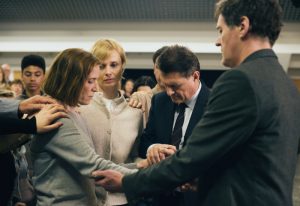 DER UNSCHULDIGE / THE INNOCENT
DER UNSCHULDIGE / THE INNOCENT EL REINO
EL REINO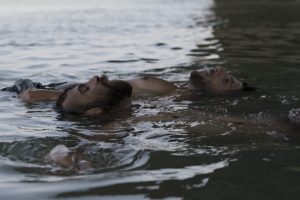 ENTRE DOS AGUAS | ISAKI LACUESTA | SPAIN
ENTRE DOS AGUAS | ISAKI LACUESTA | SPAIN 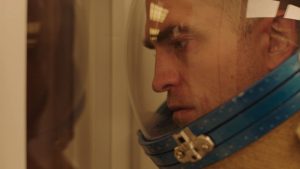 HIGH LIFE.
HIGH LIFE.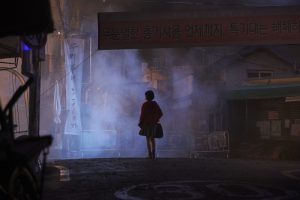 ILLANG: THE WOLF BRIGADE
ILLANG: THE WOLF BRIGADE LE CAHIER NOIR / THE BLACK BOOK
LE CAHIER NOIR / THE BLACK BOOK QUIÉN TE CANTARÁ
QUIÉN TE CANTARÁ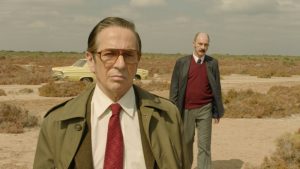 ROJO
ROJO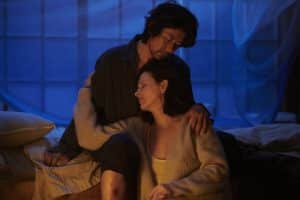 VISION
VISION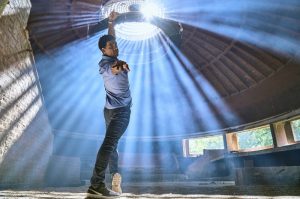 YULI
YULI